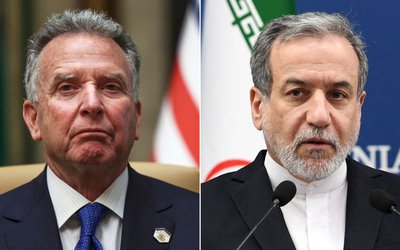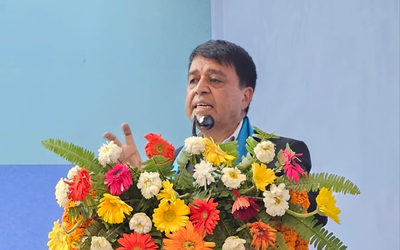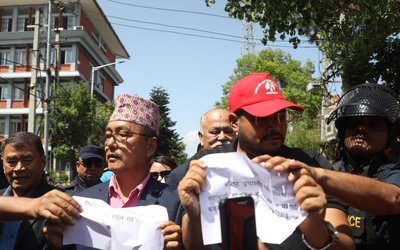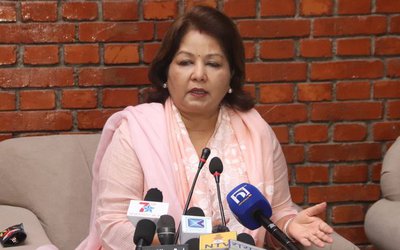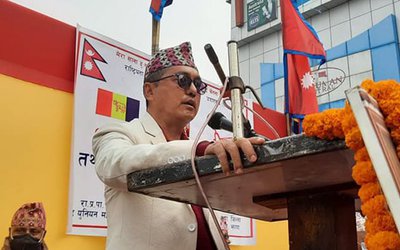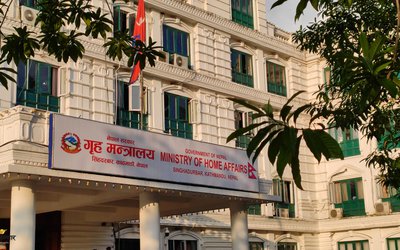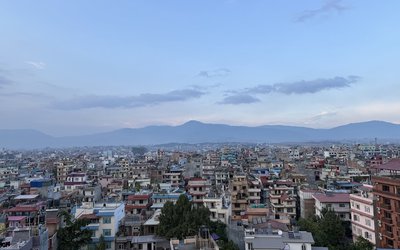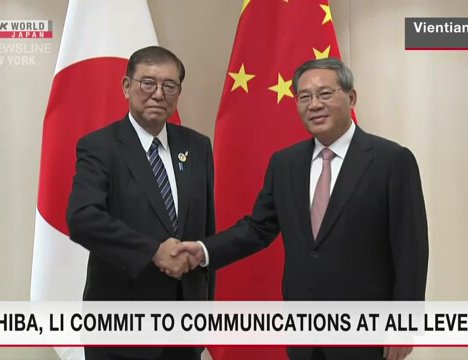
Japanese Prime Minister Ishiba Shigeru and Chinese Premier Li Qiang have affirmed that their countries will continue to communicate at every level. Ishiba has also conveyed deep concerns about the situation in the East China Sea and increased activity by the Chinese military near Japan.
The two leaders met for about 30 minutes in Laos on Thursday on the sidelines of talks related to the Association of Southeast Asian Nations. It was their first meeting after taking their current respective posts.
At the start of the talks, Ishiba told Li that their countries share a broad direction of comprehensively promoting a mutually beneficial relationship based on common strategic interests and building constructive and stable bilateral ties.
Ishiba noted that the two countries have the potential for cooperation, but there are also pending issues and concerns.
He said he hopes the governments of Japan and China will work together so that the peoples of both nations can benefit from the development of bilateral ties.
Li said the in-person meeting that came soon after the Japanese leader took office demonstrates that both countries attach great importance to their relations.
The Chinese premier also said the China-Japan relationship is in a pivotal phase of improvement and development.
He added that his side intends to work for both countries to have mutual political trust and build a constructive and stable bilateral relationship suitable for the new age.
Ishiba and Li agreed to instruct their working-level officials to allow bilateral ties to evolve enough to produce specific results.
The leaders welcomed a bilateral agreement announced last month that will lead to the resumption of China's imports of Japanese seafood. Ishiba sought an early resumption.
China suspended imports right after the operator of the Fukushima Daiichi nuclear power plant began discharging treated and diluted water into the ocean in August last year.
Water used to cool molten fuel at the plant has been mixing with rain and groundwater. The accumulated water is being treated to remove most radioactive substances, but still contains tritium.
Before releasing the treated water into the ocean, the plant's operator dilutes it to reduce tritium levels to about one-seventh of the World Health Organization's guidance level for drinking water.
Ishiba proposed that Japan and China should advance cooperation in areas including the environment and energy conservation, as well as medicine and nursing care. He agreed with Li to enhance bilateral collaboration through high-level economic talks and other occasions.
Ishiba relayed profound concerns about China's stepped-up military activity near Japan and issues surrounding the East China Sea, including a buoy placed by Beijing in Japan's exclusive economic zone.
He also asked for a thorough explanation about an intrusion into Japan's airspace by a Chinese military aircraft in August.
Ishiba told Li that Japanese nationals in China are increasingly worried after a boy was fatally stabbed on his way to a Japanese school in the southern Chinese city of Shenzhen last month.
The prime minister strongly urged China to get to the bottom of the incident, brief Japan on the matter and ensure the safety of Japanese citizens as soon as possible. He also sought the early release of Japanese people detained in China.
Ishiba told Li that Japan is keeping a close watch on recent developments surrounding Taiwan, such as military situations. He emphasized that the peace and stability of the Taiwan Strait are extremely important for the international community, including Japan reports NHK.
- Iran, US to continue talks for nuclear deal
- Apr 20, 2025
- Putin announces Easter ceasefire in Ukraine
- Apr 20, 2025
- ICIMOD Says Hindu Kush Himalaya (HKH) Faces Lowest Rainfall In Third Conseqquetive Year
- Apr 19, 2025
- Tatopani Border Point Will Be Upgraded: Foreign Minister Dr. Deuba
- Apr 19, 2025
- Zelenskyy accuses China of supplying weapons to Russia
- Apr 19, 2025
